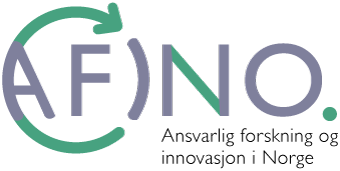The gap between intentions and outcomes through the controversial 'in vitro' meat topic
Looking at the gap between intentions and outcomes through the controversial 'in vitro' meat topic
Explanation on how the group explored the gap between intentions and outcomes in research:
As an interdisciplinary group, we started with the discussion of a diversity of challenges that early career researchers face when doing critical type of research. It is on this regard that the division between internal and external concerns emerged as something common across our projects.
We agreed that while internal concerns can be discipline or institution related and hence be raised within a project team or an organization, external issues or matters often remain candid for researchers and can be explored by engaging with various stakeholders.
The in vitro-idea
We therefore decided to undertake a topic not common to any of our specific projects, but which is highly controversial and to which most people have an opinion: ‘in vitro meat’ production.
We came up with this example as we were discussing transdisciplinarity, and the diversity of interfaces between science and society that we do not always have time to consider as we are engaged when doing research. On these terms, we also started to discuss the responsibility we may have as scientists towards different kind of "others" (especially as a possible intention that is not always explicit). Taking the example of in vitro meat, we wanted to explore the diversity of ways to put the problem around this topic, especially the tensions that may exist between what it technically feasible and what is ethically acceptable, and who may be discussing those dimensions.
We decided to ground our experimental methodology on personal experiences with Popular Education in France, especially with practices of reappropriation of public space (such as "Speech holder", "Voice crier"). We learned from our French and Brazilian colleagues that Popular Education has many roots, e.g., in France from workers movement, Christian traditions or WWII resistance's movement or in Brazil (educaçaõ popular) with the Brazilian philosopher and pedagogist Paulo Freire.
Both traditions carry emancipatory and anti-oppressive aims, promoting education to everyone from everyone while strengthening political consciousness and resistance. Popular Education is deeply transgressive, horizontal, and transdisciplinary.
Street survey
Based on these ideas, we decided to go to the streets to find out what citizens think of what we called as ‘synthetic meat’ rather than ‘in vitro meat’. We changed the name as we saw that people had problems in understanding what we meant with the original term. Regarding the time available and several other cultural barriers, we chose to focus our survey on the realm of OsloMet, and we interacted we students and professionals to get a sample of answers.
The specific question we asked was: “Some scientists are making synthetic meat. Would you eat?”. We received several contrasting responses, some of them highly passionate. All responses were taped recorded, and the question was given in written form in a large placard while being asked.
The variety of answers helped us to understand the multidimensionality of public opinion regarding this specific idea and allowed us to underline the gap between intentions and outcomes when doing participatory research. We found out that much of what one receives as a response relies on the way in which the questions are made, showing us that a variety of outcomes from interviewees can occur in dependence to the underling intentions that an interviewer has. We also realized that much of the responses that we received where not necessarily well informed about what “synthetic really is” but were based on an institutional preunderstanding about what science is that was based on a personal vision about how the world should be.
Given that we were located at a university campus most of us expected receiving scientifically based responses, having the idea that scientists tend to consider the subject of synthetic meat from a technical perspective (feasible or not, quantities of calories, impact of this new technique on resources for instance).
However, the few answers collected in our case showed that the people we interviewed thought the topic through the lenses of their own corporeity (e.g., their body and health), their values (e.g., animal welfare, protecting the environment, food quality), and general representations of the world and cultural practices. This showed us that the topic was more problematic topic that we first thought and that there are totally different perceptions among citizens.
Finally, this exercise reminded us (if needed) that a science that is made outside of the world can be oppressive as we reproduce/reinforce power imbalances if external perspectives are not included. In other words, science is neither inherently good (maybe even the opposite) nor neutral nor objective. Hence, we attempted to nurture a deliberative and iterative practices of science that doesn't take for granted the dominant definition of progress (e.g., creating synthetic meat) and put us in insecurity, challenging our position of knowers and privileged.
If you feel inclined you can listen to "Animales de Laboratorio", Ska-p. Link to Spotify: https://open.spotify.com/track/3tXILee5Jdcl3mxO40zBJc?si=4825c0bb00bd45de
Outcome from the groupwork
(NB - downloads automatically)

The 'in vitro meat' group:
- Joaquin Zenteno Hopp, PhD at HVL
- Tanguy Sandré, PhD at CEARC, UVSQ
- Anne-Laure Legendre, researcher at CEARC
- Karim Benam, PhD at NTNU
- Olga Mikhailova, post-doc at NMBU
- Alice Demattos Guimaraes, PhD at HVL
The group participated at the AFINO and DLN Summer Research School in Oslo, 7th-9th September 2022.
